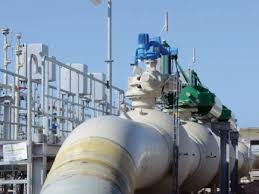According to Vitaly Markelov, deputy chief executive of Gazprom, the largest natural gas pipeline from Russia to Europe won’t start pumping again until Siemens Energy fixes broken equipment.
After Russia cut flows westward, Europe is experiencing its greatest gas supply crisis ever, with energy prices skyrocketing and importers in the EU’s largest economy even talking about future rationing.
As a result of an engine oil leak in a turbine at a compressor station, which caused a spike in wholesale gas prices, Gazprom said on Friday that the Nord Stream 1 pipeline, Europe’s main supply route, would remain closed.
Markelov responded to a question about Nord Stream 1’s resumption of gas pumping from reporters on the margins of the Eastern Economic Forum in Vladivostok, a port in the Russian Pacific: “You should ask Siemens. They have to repair equipment first.”
Siemens Energy stated that it was on standby but that it was not currently contracted by Gazprom to perform maintenance work on the turbine with the alleged engine oil leak.
The business, which has its main offices in Munich, Germany, stated on Tuesday that it did not understand how Gazprom had presented the situation.
It claimed that the pipeline should not remain blocked due to an engine oil leak at the last turbine at the Portovaya compressor station still in use.
Based on the information that was provided to us over the weekend, Siemens Energy stated in a written statement that “we cannot understand this new representation.”
“Our conclusion is that the discovered leak does not constitute a technical justification for discontinuing operation. Such leaks may be fixed on-site and often do not influence how a turbine operates “.
ENERGY CRISIS
The energy issue is attributed by the Kremlin to Western sanctions on Russia over what President Vladimir Putin refers to as its “special military operation” in Ukraine. According to European leaders, Moscow is extorting the EU through energy.
With a capacity of up to 59.2 billion cubic meters per year, Nord Stream 1 is by far the largest Russian gas pipeline to Europe. It flows beneath the Baltic Sea to Germany.
Nord Stream, which was once seen as a sign of collaboration between one of the top energy producers and the fourth-largest economy in the world, is now the focus of disputes between Berlin and Moscow.
Germany, the largest consumer of Russian energy in Europe, claims that Russia is no longer a dependable provider. According to EU leaders, Putin is stirring up unrest in Europe over the war in Ukraine using its influence as the leader of one of the largest energy powers in the world.
Germany views Gazprom’s justifications for turbine problems as a ruse.
But according to the Kremlin, the West is to blame for starting the current energy crisis by enforcing the harshest sanctions ever. According to Putin, this action amounts to declaring economic war.
The Kremlin has threatened retaliation in response to a G7 proposal to control the price of Russian oil, however, this move is unlikely to be detrimental to Russia unless China and India decide to follow suit.
On Tuesday in Vladivostok, Russian Energy Minister Nikolai Shulginov declared that Russia would increase its oil exports to Asia in response to the price cap. He claimed that in order to facilitate the oil trade, Russia and its allies were thinking about establishing insurance.

















